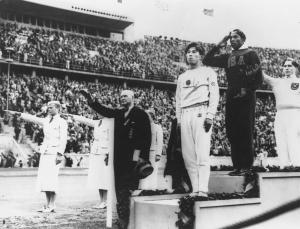|
Living in Korea as a Korean, speaking Korean, you don’t really get to know what it’s like to be an outsider. We are safe and sound in the group of what we call ‘us’. We strengthen this bond by separating ‘us’ from the ‘others’, and the ‘others’ may vary from evil enemies to poor unfortunate souls. The latter group is where immigrants often fall into. Immigrants, easily neglected from history, sometimes blamed as traitors, and more often pitied, are hardly seen as the way they are. |
|
The story starts with a brief introduction of a small family in Korea, around the time when Korea had just been colonized by Japan. The father, Hoonie, is an upright man with minor deformities. Yangjin, the mother, is a strong and sensible woman. Sunja, the only child, is a bright and well-minded girl. The three run a small yet decent boardinghouse in Yeongdo, a small island next to Busan. They earn just enough to not starve, which is more than enough to stay happy. A few years after losing her father, Sunja is seduced by Koh Hansu, a very wealthy man, who is soon revealed to be a married yakuza. After the realization, Sunja refuses to be Hansu’s mistress, despite her pregnancy. But then Isak, a Christian pastor, who owes his life to Yangjin and Sunja, offers to be Sunja’s husband and the father of the unborn child, but with one condition: they must start a new life in Japan. And so they settle down as a new small family in Osaka, Japan, not knowing the years of suffering that are yet to come.
The author Min Jin Lee, who also migrated to America when she was a child, seems to understand very well what it means to be part of an alien heritage. She gives a very delicate touch to the characters’ buildup, which is quite different from other bestselling Japanese colonial-period novels in Korea. While these stories mostly focus on ideology, Min Jin Lee pours much greater effort in the development of individuals. All the characters pretty much go through the same historical events. However, the hardship they bear cannot be labeled under the same category. For instance, Sunja endures her life as a powerless colonial working woman, and also as a poor but strong and caring mother. But her first born son Noa has to endure the burden of being a perfect student at all times, since the smallest mistakes will stigmatize not only him, but also his whole ethnicity. He also goes through a huge confusion of identity, from being born in a Korean family, but educated in a Japanese school. These delicate layers of identity within and between the characters give so much reality and power to the story. Another unusual feature is the panorama-like structure of time. The book covers nearly a hundred years in just a little more than 500 pages. Page by page, the characters grow up and grow old. Readers get to see them from their birth till their last days of life. This creates a sense of sorrow and anxiety by making the readers say goodbye so soon to their dear characters who they can relate to in so many ways. The author also makes sure to let people know what historical events are going on in this fast pace of time, in great accuracy and detail. She combines the micro and macro stories of the panorama very well, which gives even more strength and reality to her book.
Min Jin Lee makes it clear to tear down the boundaries between people. She does this not by forcefully reconciling her characters, but by revealing their deepest inner selves, which are inevitably humane. The sophisticated structure of the story becomes a clear window for readers to truly see outsiders, in this case, immigrants, the way they are. The characters become so real, real enough to seep into our hearts as genuine human beings. And by understanding that there is no such distinct separation between ‘us’ and ‘others’, readers get a glimpse of lost stories which history has claimed as unimportant. |
|
Life for most people doesn’t always shine in glory and greatness like it does for those of heroes. Most of the time it has nothing to do with being dramatic. Sometimes, it’s even pathetic. But greatness doesn’t define the value of being. Life itself is full of meaning. Yet, undeniably, we do have a tendency to flatten the meaning of life into a black and white image, especially those of the outsiders, such as immigrants. By doing this, humanity is also flattened like a paper doll. But how well can paper dolls portray the countless shades of existence? These somewhat trivial shades and moments of life, when observed in a humane light, will make us understand the world as a much warmer and more welcoming place for every individual. |
Lee Giwon jlee1402@naver,com
<저작권자 © 홍익대영자신문사, 무단 전재 및 재배포 금지>





